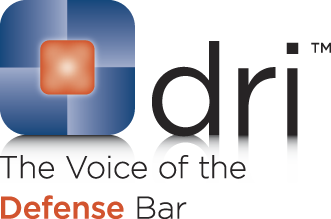Have you ever received a bill for tow charges that were just too darn high? Here are some ways to reduce the risk of receiving such a bill and if received to address those charges.
1.) Make Record Of The Tow Trucks That Respond To The Scene
There are so many things happening at the scene of an accident sometimes details can be lost. Writing things down or taking pictures are great ways to document what went on. Obviously we encourage drivers to take photographs of the damaged vehicles and contents. However, have you thought of encouraging drivers to take photographs of the tow vehicles that responded to the scene? By getting pictures of the responding tow vehicles, you can document how much equipment was actually used versus what the tow operator claims on the bill that it used. Taking pictures or making a written record are good ways to make sure that the tow operator know that you are watching what they are doing.
2.) Involve Yourself As Early As Possible In The Tow.
If you intervene early enough, you may be able to convince the tow operator to take the truck directly to your yard or a neutral location rather than their tow yard. By having the truck taken somewhere other than the tow yard, you avoid the hassle of dealing with the tow operator regarding the cargo and the truck. By paying immediately, you can avoid the tow operator asserting its lien against the vehicle.
If you can’t intervene and the truck gets towed to a yard, make sure that you get your itemized bill from the tow operator as soon as possible so you can know what you are facing.
3.) If The Truck Ends Up In The Tow Yard And The Bill Is Too Darn High, Politely Remind The Tow Company That The Lien Is On The Truck And Not On The Cargo.
Like in most states, Nevada gives a tow truck operator a lien on vehicles that it tows and stores. NRS 108.4763. However, that lien does not extend to the cargo. If a bill cannot be immediately negotiated, it is important to point out that that tow operator’s lien is on the truck only and not on its contents. In order to make sure you are making your deliveries on time, and you can’t resolve the dispute on the truck, you can negotiate for the cargo’s immediate release. Make a deal on transloading the cargo from the damaged truck to a new one.
4. Once The Cargo Is Free, The Next Goal Is To Get The Truck Back.
If all else fails, the next step would be to write an informative letter about the value of the cargo and the truck owner’s rights under the law. You can mention in the letter that NRS 484B.443 holds the tow operator responsible for any damage to the truck and the cargo while in the operator’s possession. You can hire Mike Mills to send a letter to a Nevada tow truck operator in your behalf. Alternatively, if a tow truck dispute is outside the state, Mike can hook you up with a great trucking attorney in the location where the dispute arises. That attorney could write the same-type letter.
This letter would normally include an offer to resolve the matter in its entirety for an amount less than the bill. If that compromise offer is not accepted, the alternative would be to negotiate for a release of the truck on condition that the full amount of the bill be placed into an attorney trust account or with some other third party until the dispute over the bill can be resolved.
If that is not enough, there is always going the next step and having the attorney represent you before the appropriate government agency or court to resolve the dispute.
So if you have a dispute over a tow truck bill and need some help, contact Mike at Mills and Associates 702-240-6060 and he will do his best to help resolve the matter.
Thanks to Jeff Segal, Esq. who shared these important ideas at the November 2013 TIDA seminar.
 Follow
Follow Email
Email


